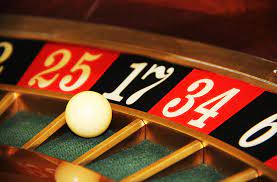
If you’re considering playing roulette, it is important to understand how many slots are on a roulette wheel. This knowledge can help you make better betting decisions and reduce your chances of losing money.
A roulette wheel has 37 pockets numbered 0 to 36, and the wheels used in the United States have an additional 00 slot. Bets can be placed on individual numbers, groups of numbers, colors, and odds.
Slots
Roulette is a luck-based casino game that features 37 numbered pockets on the wheel, including the green zero. Some numbers hit more often than others, but this doesn’t mean the game is rigged. A Roulette wheel’s jumbled numbers and sharp barriers prevent it from favoring specific number groups on the betting table.
Roulette wheels are regularly inspected and tested by casinos to maintain their reliability. They also use sophisticated equipment to examine the results of each spin to detect mechanical problems. This is important because the game depends on a physical system and can’t be controlled by a computer program.
Roulette is a fast-paced game that can be exciting and enthralling, but it’s important to remember that your money can disappear in an instant. To avoid this, you should set a limit for your wagers and stick to it. In addition, it’s a good idea to diversify your bets. This way, you’ll be less likely to make costly mistakes and lose more money.
Odds of winning
When playing roulette, odds of winning are based on the probability that the ball will land in a specific slot. These odds are calculated by subtracting the total number of spaces from the total number of possible outcomes. However, the odds of winning are not the same for every spin and are subject to variation over time.
This is because the wheel contains imperfections that can affect the outcome of a spin. These imperfections can be caused by mechanical or environmental factors. They can also vary between casinos, which can cause the odds of winning to differ slightly from one location to another.
Regardless of the casino, there are some ways to increase your chances of winning. Outside bets, for example, offer better chances of hitting than inside bets. Moreover, these bets have higher payouts than those on single numbers. You can find the odds of different bets paying out in the game’s pay table.
Payouts
The odds of winning at roulette vary depending on the type of bet you place. In general, outside bets pay out more frequently than inside bets. However, the payouts will also vary. The odds of winning a straight up bet are 35:1.
A European roulette wheel contains 37 slots, numbered 1 to 36 and 0 while an American roulette wheel has 38 slots, including a green zero and a double-zero slot. While it is difficult to win a bet on a single number, the odds of winning on a color or odd/even bet are much better.
In the late 1800s, an English engineer took advantage of imperfections in roulette wheels to increase his chances of success. He paid six assistants to watch and record the outcomes of every spin of a Monte Carlo roulette wheel, then bet heavily on numbers that came up slightly more often. Casinos eventually caught on to this strategy, and now switch out roulette wheels nightly.
Variations
If you’re wondering about variations on how many slots there are on a roulette wheel, the answer is that it varies by wheel and game. There are also different types of tables and rules. For example, some players like to make special bets such as zero spiel or troché. Others prefer to bet on the numbers 1 to 18 or 19 to 36.
Roulette wheels are made of metal and have a series of numbered pockets, alternating between red and black. The number sequence is not random and is based on a specific pattern that ensures there are equal numbers of high and low pockets.
Roulette manufacturers are always trying to improve the quality of their machines. They now use high-tech materials that can withstand a lot of wear and tear without compromising the accuracy of the spinning mechanism. They also strive to eliminate problems such as deceleration, which causes the ball to slow down when it stops on a number.
